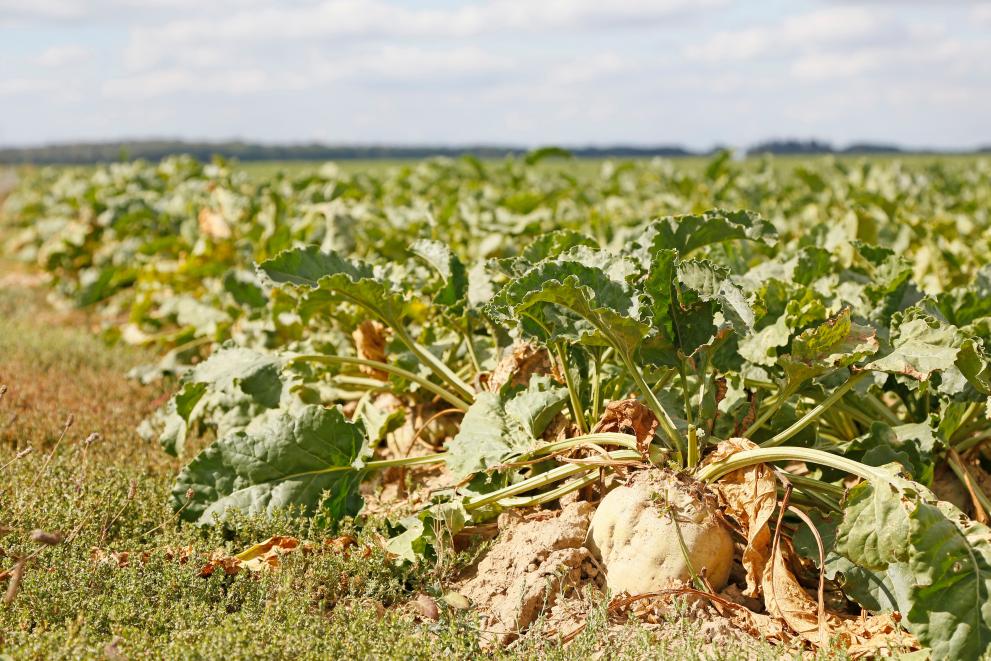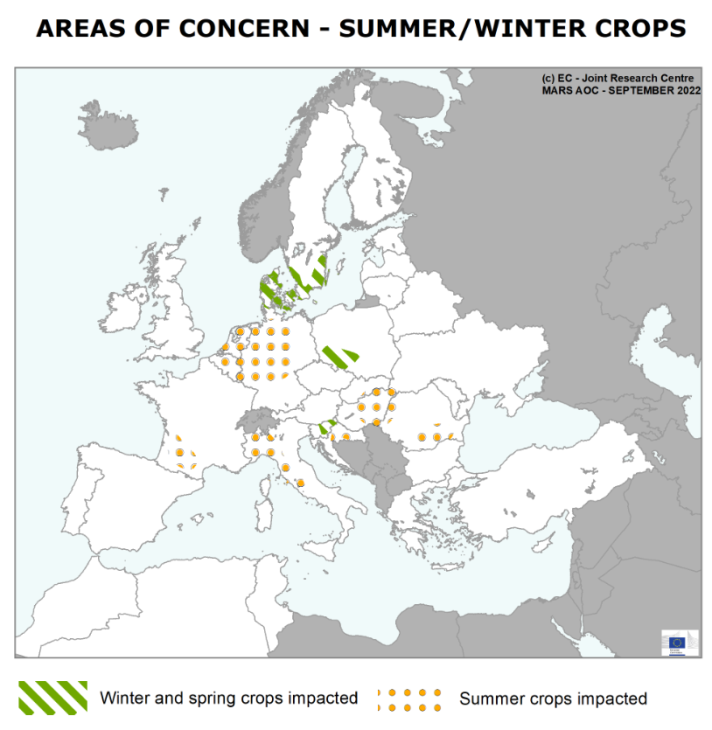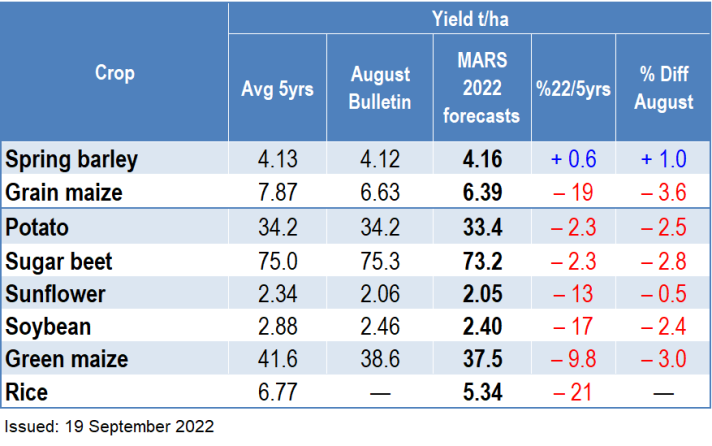
The September issue of the JRC MARS Bulletin - Crop monitoring in Europe, published today, shows however that the improved weather conditions arrived too late to significantly benefit summer crops. In some regions, hot and dry conditions continued well into the current review period, resulting in a further reduction of yield expectation. At EU level, the yield forecasts for all summer crops addressed are now below the 5-year average.
This issue of the Bulletin features a special section on rice, a crop that is particularly vulnerable to water stress. The rice yield forecast at EU level is 21% below the 5-year average.
Extremely dry and hot conditions continued in several regions
In Italy, rain brought some relief in north-eastern regions, but central and north-western regions continued suffering from low soil moisture and reduced water availability for irrigation. In the Benelux countries, western Germany and Croatia, drought conditions continued until the first days of September having negative impacts on grain maize, green maize, sugar beet and potatoes. In Hungary and Romania, two consecutive heat waves negatively affected the already weakened summer crops.
In Spain, the ongoing drought conditions raise concerns for the next season, as soils are very dry and water reservoirs will need much more rainfall than usual to be restored.
Predominantly favourable conditions for the sowing of winter crops
Rainfall since mid-August did improve soil conditions for seedbed preparation and sowing of winter crops - particularly rapeseed - in most regions. However, in northern Europe, sowing was hampered due to dry soils, whereas overly wet conditions caused damage to recently sown stands of winter crops in southern Poland.
We need your help: JRC MARS Bulletins Survey
The JRC MARS Bulletins Survey aims to collect information to better understand how you use the JRC MARS Bulletin. This will help us to improve our service in the future. Completion of the survey should take less than 10 minutes of your time. All information collected will be anonymous - no personal information is requested.
The survey is available at 2022 JRC MARS Bulletin - Crop Monitoring in Europe Survey
Further information
JRC MARS (Monitoring Agricultural Resources) Bulletins
The latest information about global agricultural production hotspots for countries at risk of food insecurity is available on the JRC’s ASAP (Anomaly hot Spots of Agricultural Production)
Details
- Publication date
- 19 September 2022
- Author
- Joint Research Centre


